Your bathroom is a space where style, functionality, and durability must work together.
By selecting the right materials for your countertops, flooring, and walls, you’ll ensure that your bathroom looks beautiful, withstands daily use, and requires minimal upkeep.
In this guide, the bathroom designers at Cypress Design Co. explore the best options for creating a lasting, high-quality custom bathroom design.
- What’s the best material to use for bathroom countertops?
- What’s the best material for your bathroom floors?
- What type of material is best for bathroom walls?
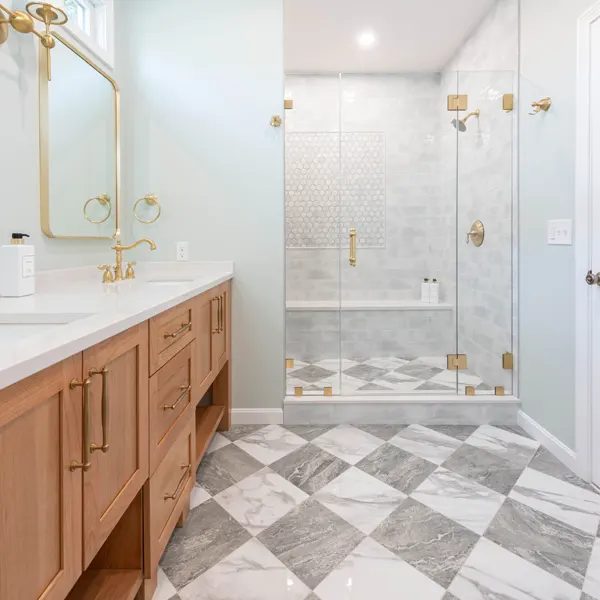
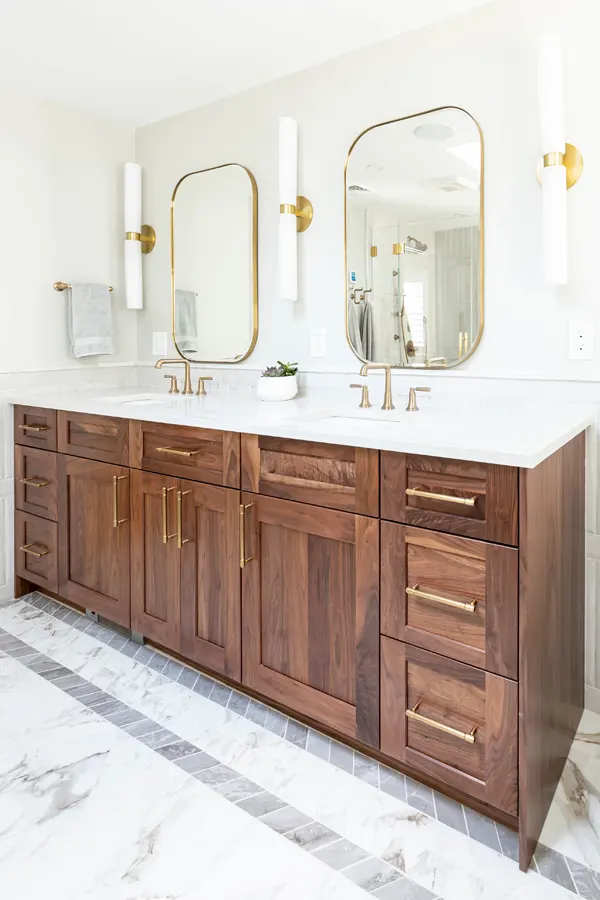
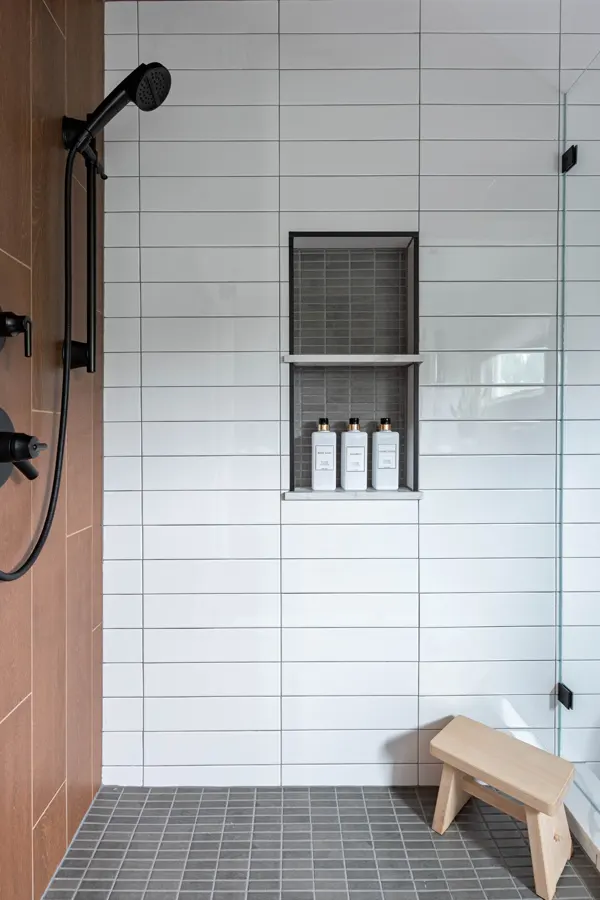
What’s the Best Material to Use for Bathroom Countertops?
- Natural Stone
- Engineered Quartz
- Solid Surface Materials
Natural Stone
Granite, marble, and quartzite provide timeless beauty and long-term durability.
- Granite resists scratches and heat, making it ideal for daily use.
- Marble offers classic elegance, but it requires sealing to protect against stains.
- Quartzite combines visual appeal with a hard, durable surface suitable for high-traffic bathrooms.
Engineered Quartz
Quartz countertops provide uniform patterns and consistent durability. They resist stains, scratches, and moisture for low-maintenance surfaces that retain their appearance over time. Quartz also allows for a wide variety of colors and finishes to match your design vision.
Solid Surface Materials
Solid surface materials like Corian offer flexibility in shaping and custom integration. They resist moisture and can be repaired if minor scratches occur. These options are perfect for smooth, continuous countertops that fit custom sinks and vanities.
Should Your Bathroom Countertops Match the Floor?
No, your bathroom countertops don’t need to match the floor exactly. Instead, aim for harmony by coordinating colors, tones, or materials.
For example, if your flooring has warm undertones, choose countertops with complementary shades to create a cohesive look. Contrasting materials can also work, such as pairing dark quartz countertops with light porcelain tile to add depth and visual interest.
Focus on balance and flow throughout the space rather than exact matches, so your bathroom feels intentional and well-designed. Invest in professional bathroom design services to determine the best combination for your home, personality, and lifestyle.
What’s the Best Material for Your Bathroom Floors?
- Porcelain & Ceramic Tile
- Natural Stone
- Luxury Vinyl & Waterproof Laminate
Porcelain and Ceramic Tile
Tile provides exceptional durability and water resistance, so it’s an ideal material for bathroom floors. Porcelain is denser and less porous than ceramic, so it provides extra longevity.
Both materials come in a wide range of colors, patterns, and textures. You can select tile that mimics natural stone or wood for added style.
Natural Stone
Stone flooring (such as travertine, slate, or granite) delivers a luxurious look. Proper sealing ensures protection against moisture and staining. Stone floors add value and create a premium feel in your bathroom.
Luxury Vinyl and Waterproof Laminate
Luxury vinyl planks and waterproof laminates offer budget-friendly, durable alternatives while still providing the appearance of wood or stone. Possibly the lowest-maintenance flooring for a bathroom, they resist moisture, work well in high-use areas, and allow for quick installation.
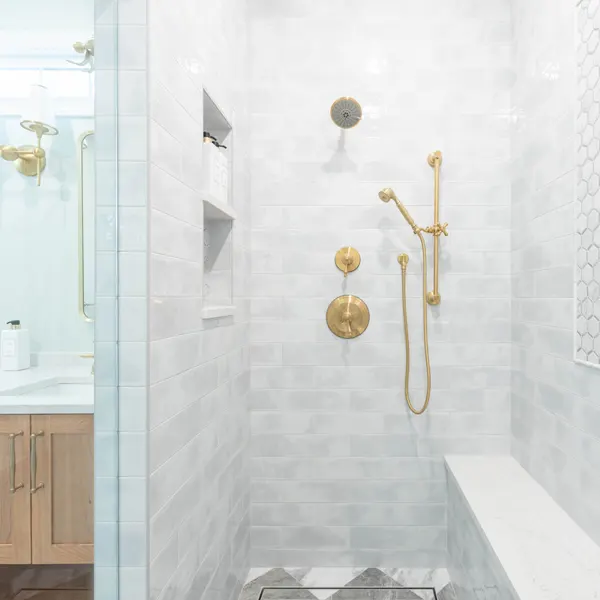
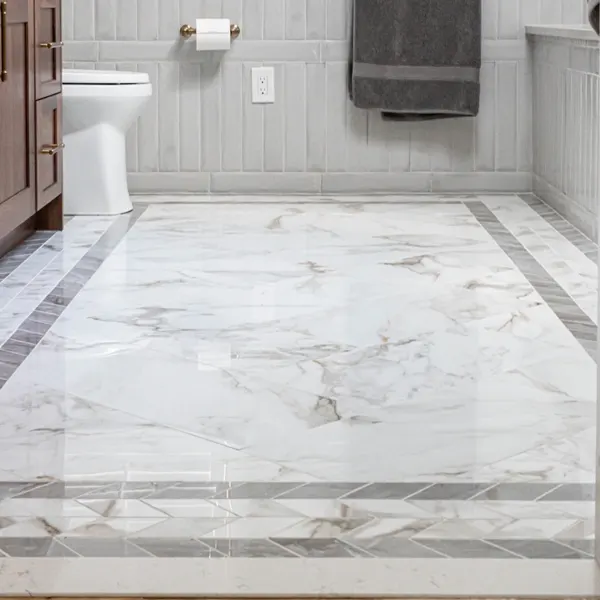
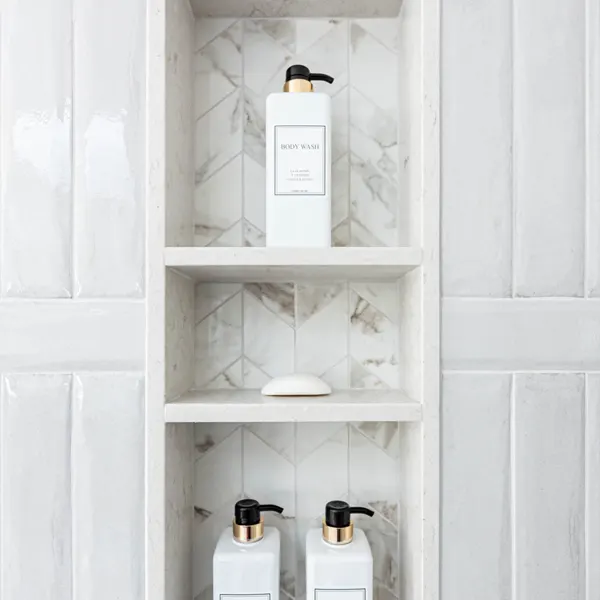
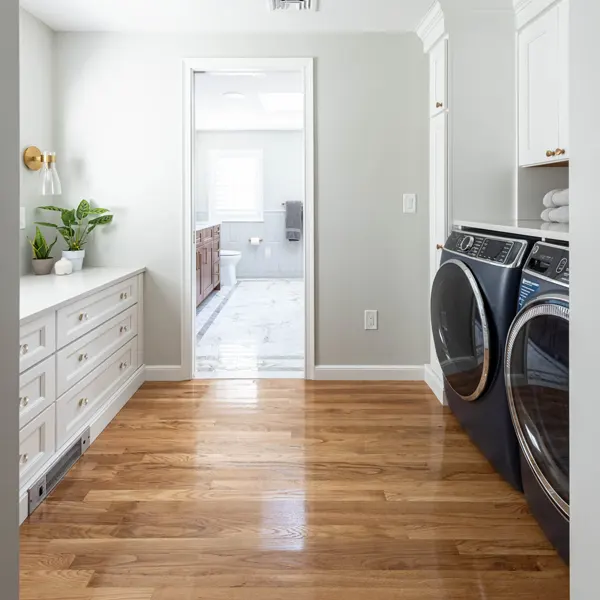
What Type of Material is Best for Bathroom Walls?
- Tile & Stone
- Moisture-Resistant Paint
- Wall Panels
Tile and Stone
Ceramic, porcelain, or natural stone tiles protect walls from water damage and offer design flexibility. Large-format tiles reduce grout lines for a cleaner appearance. Consider accent walls or textured tiles to add dimension and visual interest.
Moisture-Resistant Paint
High-quality, moisture-resistant paints prevent mold and mildew growth. Pair these paints with proper ventilation to maintain a fresh and healthy bathroom environment. Neutral tones and soft colors create a calming atmosphere, while bold colors can provide a focal point.
Wall Panels
Waterproof wall panels, such as acrylic or PVC, offer a modern, seamless look. They’re easy to clean and install, which makes them a practical choice for areas prone to moisture, including shower surrounds.
4 Pro Tips for Balancing Style & Durability in Your Custom Bathroom Design
- Match materials with your daily habits. If your bathroom experiences heavy use, prioritize surfaces that resist stains and scratches.
- Layer textures and finishes to make it more visually interesting. Pair smooth countertops with textured tile or a matte wall finish.
- Consider low-maintenance options for ease of cleaning. Avoid materials that require constant sealing or specialized care if you prefer simplicity.
- Choose materials that complement your overall home design. Harmonize colors and patterns with cabinetry, lighting, and fixtures.
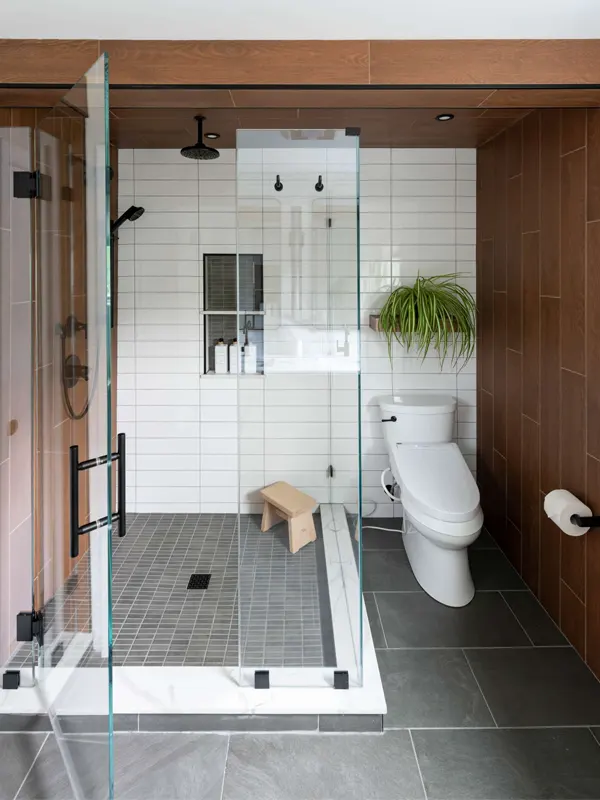
Find the Right Materials for Your Vision at Cypress Design Co.
Selecting the right materials for your bathroom ensures lasting beauty and functionality. By combining durable countertops, resilient flooring, and water-resistant walls, you’ll create a space that performs well for years and reflects your personal style.
Thoughtful material choices empower you to achieve a custom bathroom design that enhances your home’s value and provides comfort every day. For personalized support from our experts, contact Cypress Design Co. today to book an appointment for custom bathroom design services.
